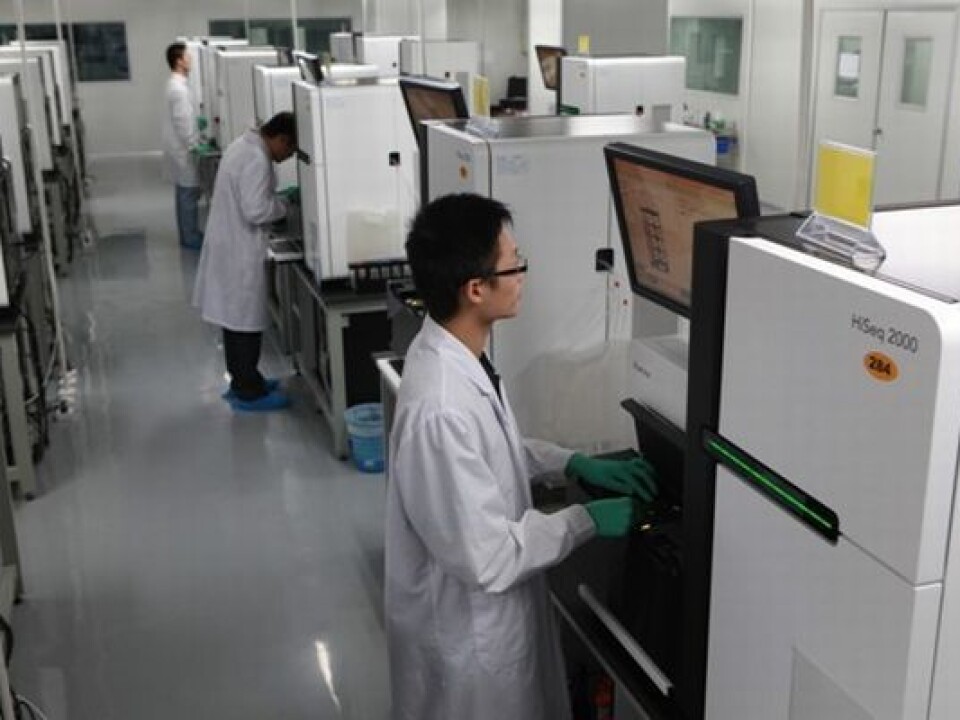
New European genome HQ to create genome atlas
The opening of a new international genome research centre in Copenhagen marks the kick-off to an ambitious research project, which could lead to a cancer vaccine.
Two integrated projects will be initiated in the new international genome research centre, which opened last week in Copenhagen.
One aims to create a genome atlas and the other seeks to prevent cancer by developing vaccines.
Mapping the Danish genome
One part of the project seeks to catalog the millions of variations in the Danish population’s DNA.
“Research has shown up to now that the variations in the human genome are far greater than we thought,” says Professor Karsten Kristiansen, of the Department of Biology at the University of Copenhagen, who heads this part of the project.

Genetic variations mean that people react differently to medicine. The project aims to gain a unique insight into the genetic structure of the Danish population for use in future research.
“The project will pave the way for individual prevention and treatment in Denmark in the future,” says Kristiansen.
Searching for a cancer vaccine
The other part of the project, headed by Professor Eske Willerslev of the University of Copenhagen, aims to use the new state-of-the-art facilities to identify previously unknown pathogens that could lead to the development and patenting of commercial vaccines against cancer.
If the researchers manage to find a virus that makes tissue develop into cancer tissue, it could be possible in the long run to develop a cancer vaccine.
BGI, an indispensable partner
The Danish Platform for Large-scale Sequencing and Bioinformatics, as the new centre is called, is a subsidiary of Chinese BGI (Beijing Genomics Institute), which has the world’s largest genome sequencing centre at its disposal.
The project is a joint venture between four Danish universities – Aalborg University, Aarhus University, DTU and the University of Copenhagen – and three private businesses, Bavarian Nordic, Genomic Expression and BGI.
BGI’s European subsidiary, BGI Europe, is an important business partner for Danish universities in the field of genome research.
BGI delivers the immense computer capacity required for the full sequencing of genomes.
Sequencing technology improving by the day
Sequencing is a highly accurate mapping of the genes in the human genome. Without BGI’s computing power, a project of this magnitude would simply not be possible.
There are rapid developments in this area and prices are dropping drastically as the technology improves.
Today it costs around $1,000 to sequence a genome. But Kristiansen reckons that within the next decade it will be cheaper to sequence an entire genome than to make clinical tests such as extracting and analysing a blood test.
BGI currently manages to sequence the genomes of 5,000 people every two weeks – and that figure is expected to rise as the company is currently building the world’s largest computer.
Close Chinese-Danish connection
It is not a coincidence that the Chinese have decided to open their European headquarters in Copenhagen.
Danish academics have built up a close relationship with the Chinese from as far back as the 1980s, and it’s not only a professional connection:
“Once you get to know the Chinese, you realise lots of similarities between them and us. They have an incredibly charming sense of humour and are very self-ironic,” says Kristiansen, who has formed close friendships with several Chinese researchers, including BGI’s chairman of the board, Yang Huanming, who received his PhD at the University of Copenhagen.
The people behind the project are convinced that with this new sequencing platform, Denmark will join the elite in human genome research.
--------------------------------------------------
Read this article in Danish at videnskab.dk
Translated by: Dann Vinther










